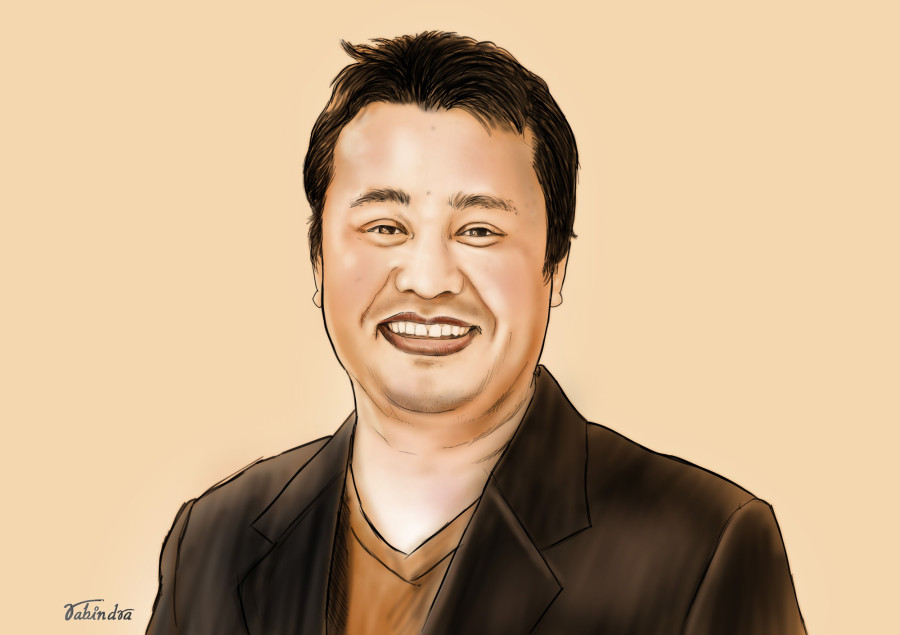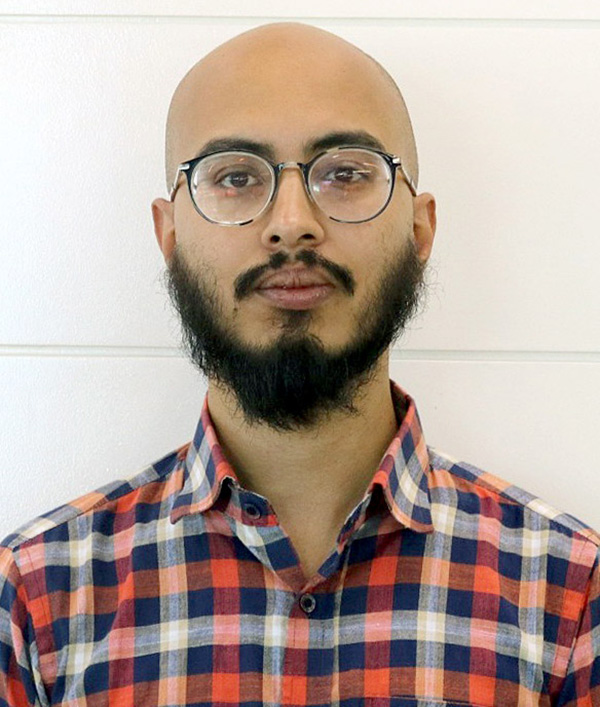Brunch with the Post
Sameer Maskey: With right talent, Artificial Intelligence can help transform Nepal
The computer scientist talks about AI, his work with natural language processing and what his company Fusemachines is doing in Nepal.
Pranaya SJB Rana
There’s an existential crisis that is currently afflicting prominent computer scientists across the world. It’s something that Isaac Asimov fretted about in I, Robot and it is what dozens of scientists, including Stephen Hawking, cautioned against in an open letter on artificial intelligence saying that while the potentials of AI are huge, “it is important to research how to reap its benefits while avoiding potential pitfalls.”
Unlike Stephen Hawking or Elon Musk, both of whom have issued doom-and-gloom warnings about AI, Sameer Maskey is not as dire. He’s eminently practical.
“I don’t have that same fear of AI,” he says. “We should rather be afraid of the misuse of advanced AI systems.”
Maskey is the founder of Fusemachines, an advanced machine learning company. He also teaches natural language processing and programming at Columbia University in New York. Given that he works with and teaches artificial intelligence, his assessment is at once comforting and disquieting.
“Facial recognition is the biggest surveillance tool,” he says over bibimbap at the Hankook Sarang in Tangal. “AI can be the best tool for suppression and surveillance, so it’s scary from that perspective, not machines waking up and enslaving humanity.”
That’s a little disappointing for someone who grew up on Terminator films, but perhaps I should be glad that a robot apocalypse isn’t here just yet.
Maskey is a computer scientist and his chief interests lie in machine learning, specifically natural language and speech processing, and speech-to-speech translation. It was what he worked on at the IBM Watson Center, translating languages like Arabic, Chinese, Spanish, Farsi and Pashto. A speech-to-speech translation system is able to listen to one spoken language and translate it into another language. This might sound simple but it is exceedingly difficult, given how complicated human languages are.
“But at the end, no matter what you do, its 0s and 1s, binary logic. Everything then becomes a mathematical problem,” says Maskey.
Language quite literally rewires our brains, so it is a complicated thing to model, even for the kind of advanced artificial intelligence that is around these days.
“According to discourse theory, there’s 30 to 40 different ways you can categorise the intent of a spoken sentence,” Maskey says. “The exact same words can mean different things depending on how, when or where I say it. For instance, if I say, ‘I saw a man on a hill with a telescope’, and you’re sitting in a living room, you might assume that I’m saying I saw a man on a hill using a telescope. But if I say the same thing while we’re hiking, you might assume that there is a man carrying a telescope. We get that as humans but machines have a hard time.”
The work of Noam Chomsky has shown that language works on a synthesis of syntax—the grammatical structure of the sentence—and semantics—the meaning of the complete sentence. Machines might be able to replicate the syntax but things get a whole lot more complicated when they try to tackle semantics.
Fusemachines routinely encounters this problem, according to Maskey, as the company provides automated customer service solutions using artificial intelligence to answer customer questions. Among Maskey’s biggest clients is the city government of New York. Fusemachines currently operates in four different countries—Canada, the US, the Dominican Republic and Nepal—and it is looking to expand to two more—Kenya and South Africa. In Nepal, it has 200 employees, including engineers, sales support, customer service and operations.
But in Nepal, Maskey is doing more than just running a business. Fusemachines is currently running ‘AI Shikshya for Nepal’, a programme that aims to bring AI education to Nepali students.
“When I started my company here, I realised that a lot of people are capable if they get the right kind of training and the right kind of resources,” says Maskey. “There is talent but it needs the right kind of education.”
A few years ago, Maskey partnered with Columbia University’s Micromasters programme to provide a world-class computer science education to Nepali students on 25 fully paid fellowships. Now, Maskey will be partnering with schools and colleges in Nepal to teach machine learning, deep learning and natural language processing within their institutions itself.
“We want to train a massive number of students in machine learning and AI so that there is a talent pool for our own company but also so that Nepal can use this new resource talent pool,” says Maskey.
But I wonder if Nepali students are really ready for the kind of advanced computer science that Maskey wants to teach. After all, Nepal’s education is no gold standard when it comes to keeping up with rapid global advancements, especially in technology.
“Most are not ready to take the first class,” says Maskey. “But as a developing country with limited resources, I think Nepal has done what it can.”
Machine learning and AI doesn’t just require high-speed internet and an uninterrupted power supply, which Nepal now has. It also requires sophisticated computers, capable teachers and a world-class library. But according to Maskey, if you really want to study machine learning, what you first need is math.
“But math from the perspective of using it to solve problems, not to ace the exams,” he says with a smile.
Although the Nepal government has announced its plans to go digital, most government services must still be sought at offices from brooding bureaucrats who seem to act more out of whim than professionalism. So I’m wondering what applications could something like AI have in a country where government services still require one to blow the dust off a massive tome of records and flip through its pages.
Maskey has ideas.
“There are applications in agriculture,” he says. “On community farms with large plots of land, we can use drones to figure out which parts of the farms are not producing enough and we can automate pesticides.”
Drones can also be used to deliver medicines in hard-to-reach areas, a project that Fusemachines is already testing. Maskey’s plan is for a drone to not just find the right village or house to deliver the medicine, but also use facial recognition technology to get it to the right person. Like Amazon’s delivery drones.
“It’s like Amazon but we’re starting small,” says Maskey. “For Amazon, it will reduce delivery times by two hours. But here, it could literally save lives.”
There’s other applications too, in processing the large amounts of data generated by the government and NGOs to make predictions for disasters like drought, and in telemedicine.
“In remote places, people don’t even have access to general doctors, let alone specialists,” Maskey says. “We could use machine learning on top of telemedicine to look at symptoms and give the doctor a ranked list of five potential diseases.”
Many of these things are already happening in Nepal, pioneered by Mahabir Pun. There are drones that deliver medicines and there is telemedicine, all led by Pun’s National Innovation Centre. Maskey’s ideas could complement Pun’s work.
But before Nepal can really embark on harnessing the potential of AI, it needs a talent pool of homegrown engineers and scientists, and that is what Maskey is passionate about.
“Growing up in a developing country, the only way to make it for many people is through education,” he says. “If I hadn’t gotten a full scholarship to go to college, I’d be living a very different life.”
Maskey grew up and went to school in Kathmandu, before leaving for the US to do his undergrad. He doesn’t quite remember when or how he became interested in machine learning and speech-to-speech synthesis, especially in the late 90s, when AI had yet to capture the global imagination like it has done today. In his very first year of undergrad, Maskey wrote to professors across the US, asking them to accept him as a student.
“No one agreed at first because I was a first-year student who wasn’t even in the computer science department,” he says. “Eventually a professor in Alabama accepted so I did my research with him over the summer.”
He did it again the second year, and this time, his email ended up with Alan W Black, who is considered the ‘father’ of speech synthesis. Maskey then did research stints at Carnegie Mellon, CalTech and GeorgiaTech. By the end of his third year in college, he’d already built a “mini-version” of a Nepali-to-English speech-to-speech system and a full-blown Nepali speech synthesis system, where you could type and it would speak in Nepali. He then went to Columbia to do his PhD and went to work for IBM Watson.
But in 2013, he quit his job at one of the world’s leading computer science centres to come back to Columbia, this time as a teacher. He also founded Fusemachines. Now, he’s trying to bring AI education to Nepal so that others can have the same opportunities that he did, without leaving the country.
The world is currently obsessed with AI, which Maskey thinks is a bit overhyped. But we all need to work towards understanding and harnessing AI, as its potential will only grow in the years to come. But I want to know if AI will change the way we do things, in the same way that the internet has.
“There will definitely be a transformation,” says Maskey. “But it will be slow and steady. It won’t be like Steve Jobs rolling out the iPhone and the world changing.”
It is certain that AI will be able to do fascinating things. The world’s leading tech companies are already investing in and experimenting with what AI can do. But according to Maskey, there are limitations that give people who work in the creative field, like me, some breathing room.
“AI is more about emulating human decision-making with the same level of cognition and complexity,” he says. “Machines tend to be pretty good at self-driving cars and facial recognition but there is still no machine that can read a philosophy book and have a discussion with you.”
ON THE MENU
HANKOOK SARANG, TANGAL
Shabu shabu salad: Rs 442
Chicken dolsot bibimbap: Rs 619
Hot lemon with honey: Rs 194
Green tea: Rs 176
***
What do you think?
Dear reader, we’d like to hear from you. We regularly publish letters to the editor on contemporary issues or direct responses to something the Post has recently published. Please send your letters to [email protected] with "Letter to the Editor" in the subject line. Please include your name, location, and a contact address so one of our editors can reach out to you.




 18.37°C Kathmandu
18.37°C Kathmandu



.jpg&w=200&height=120)






